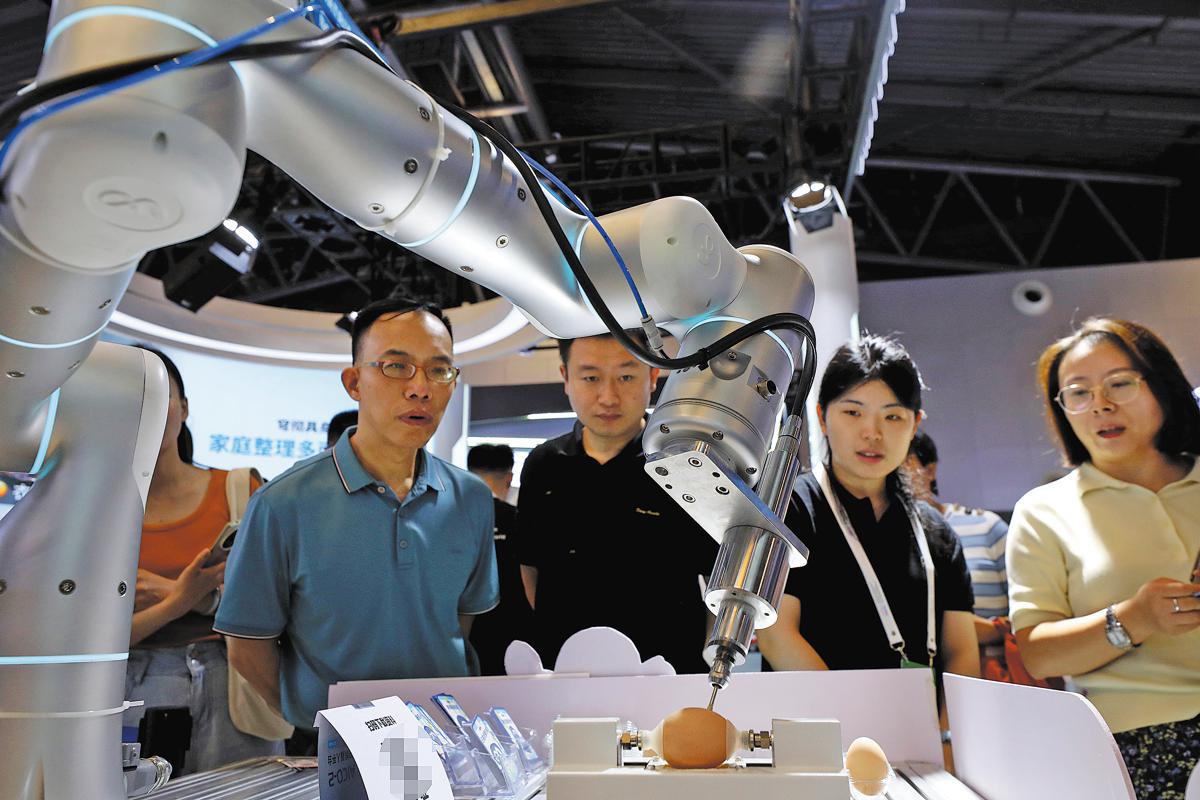
At a textile mill in Suzhou, Jiangsu province, the rhythmic clatter of looms is now harmonized with a new sound: the silent, rapid-fire calculations of artificial intelligence.
China Telecom's "StarWeave Textile AI Agent" is relentlessly at work here — adjusting thread tension in real-time and scrutinizing fabric for flaws as it emerges, transforming an age-old craft in the process.
The results speak volumes: 99 percent on-time delivery, a 20 percent surge in productivity and near-perfect defect detection, China Telecom said.
This is not an isolated experiment, but a glimpse into a sweeping transformation where AI is rapidly becoming the indispensable engine powering China's industrial evolution.
Across the vast landscape of Chinese manufacturing, a wave of "Industry plus AI" is cresting, driven by the nation's tech companies, which are scrambling to develop AI agents to solve tasks.
AI agents are software systems that use AI to pursue goals and complete tasks on behalf of users. Unlike traditional AI, which may simply assist or provide recommendations, AI agents are capable of executing complex workflows without continuous human input. These agents are purpose-built to perform specialized roles within a company, such as customer support, data analysis, compliance checking or even performing financial tasks, experts said.
Li Lecheng, minister of industry and information technology, chaired a meeting in Beijing in June, outlining a comprehensive strategy to accelerate AI technological innovation and integrated application, thereby positioning AI as a core driver of China's new industrialization.
Xie Shaofeng, chief engineer at the Ministry of Industry and Information Technology, the country's top industry regulator, said at a news conference that the ministry has also coordinated with provincial governments to develop 11 national AI innovation pilot zones.
Meanwhile, central and local authorities have jointly built specialized manufacturing innovation centers for embodied AI robots, humanoid robots and other next-generation technologies to drive the development of industrial clusters, Xie said.
Hong Qunlian, a researcher at the National Development and Reform Commission's Chinese Academy of Macroeconomic Research, said: "Manufacturing is the focal point of competition among major powers and technological supremacy. Nurturing strategic advantages for the future fundamentally relies on the high-quality development of our manufacturing industry.
"Promoting AI-driven industrial upgrading is paramount for China's real economy over the next five years. And, achieving breakthroughs in critical technologies is not optional, it is essential, as we still face challenges in these areas."
Ryoji Sekido, co-CEO of Accenture Asia Pacific, said: "China stands at the forefront of global AI innovation and deployment, serving as an unparalleled benchmark for enterprise transformation.
"There is no better place to witness AI progress than right here in China and Shanghai. The ecosystem's rapid evolution is impressive."

